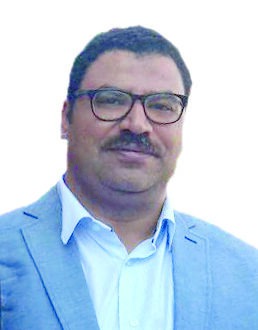It all happened in Brest last week, when efforts to mitigate the effects of climate change boldly went where no man has been before.
At the One Ocean Summit representatives of all sea basins affirmed their commitment to take action to preserve biodiversity, stop the over-exploitation of marine resources, fight pollution and, of course, ‘do something about’ climate change.
The Brest Commitments for the Oceans is seen as a breakthrough on climate change, since most countries have climate targets for land-based emissions.
However, the role of oceans in the ecological balance is overlooked, yet the waters play a huge part in stopping the temperature of the planet from rising above 1.5˚C this century.
The summit highlighted the fact that some marine and coastal ecosystems (salt marshes, seagrass beds, and mangroves) absorb and store large quantities of carbon, hence the need to speed up efforts to protect and restore those ecosystems.
European Commission President Ursula von der Leyen announced three initiatives for co-operation to conserve and revive the oceans. Firstly, a new international coalition will protect biodiversity on high seas, which constitute 95 per cent of the ocean. Secondly, researchers will set up a set up computer simulations of the world’s oceans. Lastly, the mission statement of the EU is to restore our ocean and waters by 2030.
These initiatives will bring science and technology to the heart of ocean conservation and boost ‘ocean literacy’, which will create a broader awareness, knowledge and opportunities to put new knowledge into practice.
On the bright side of the debate during the summit were discussions about the prospects of a ‘blue economy’ for the benefit of humanity. Scientists say the sustainable use of ocean resources for economic growth can improve livelihoods and create jobs, leaving the oceanic ecosystem in tip-top condition.
United Nations Secretary-General António Guterres spoke of capitalising on opportunities that nature-based solutions (mangroves and seagrasses) provide. Land-based sources of marine pollution must be addressed, Guterres said.
To promote a sustainable ocean economy, Guterres said global partnerships and investment with increased support for ocean science will be necessary “so our actions are based on knowledge and understanding of the ocean”.
“Too much remains unmapped, unobserved and unexplored,” he said.
Some of the answers to Guterres calls came in Egyptian President Abdel Fattah El Sisi’s speech to the summit, promising that Egypt, as host and chairman of the Conference of the Parties to the United Nations Framework Convention on Climate Change (COP27), will ensure that the next conference will witness constructive dialogue on this issue, relying on the leading practices and sciences available.
Sisi’s promise can be regarded as the perfect translation of what the signatories to the summit statement wrote: “The time is no longer for words and observations; the solutions exist, and all that is missing is the political will to put them in place.”






Discussion about this post